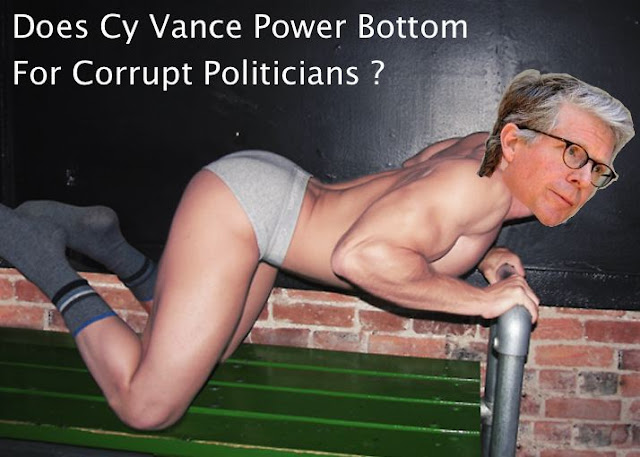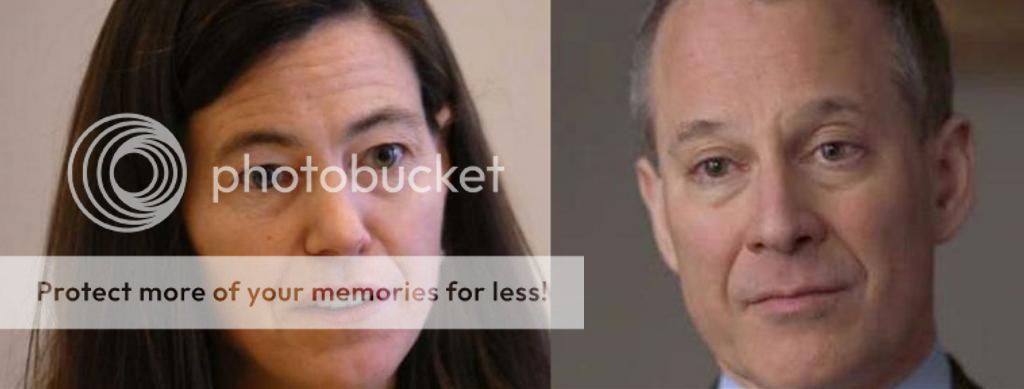|
Before he was elected Brooklyn Borough President, former State Sen. Eric Adams endorsed the failed reelection bid of ex-Brooklyn D.A. Charles Hynes. Brooklyn Beep Adams now wants to use a nonprofit charity to serve as his political arm in Brooklyn nonprofit circles.

In its house editorial yesterday, the board of editors that oversee the Opinion pages of The New York Times reminded its readers that Gov. Andrew Cuomo has failed to make good on his campaign promise to clean up the corruption in Albany.
The editors point to the sad statistic that 26 state legislators have left office due to political scandal. But the editorial overlooks the role that funneling donations or tax dollars through nonprofit groups plays in the corruption charges against several notable politicians. Despite this, the editors of The New York Times see no need to worry that more and more politicians are creating nonprofit groups that operate as the political arms of politicians.
The One Brooklyn Fund, a nonprofit that Brooklyn Borough President Eric Adams is running out of his own office, had not yet received approval from the city's corrupt Conflicts of Interest Board before Brooklyn Beep Adams began soliciting donations for his controversial nonprofit with admitted political motivations. Another violation, failing to register the nonprofit with the New York Department of State, came to the fore after The New York Post reported that the city’s Department of Investigation was probing Mr. Adams' new nonprofit. Two of the directors of the controversial One Brooklyn Fund have previously run afoul of ethics regulations, and one of the directors has become the target of journalism investigations over her role in using still yet another nonprofit group to fund an 11-day vacation to China for Mr. Adams and Diana Reyna, a top female deputy, The New York Post reported. Whenever Brooklyn Beep Adams appears at public forums, Ms. Reyna is at his close side, clutching her pearls.

Ms. Reyna, a former City Councilmember from Brooklyn, had previously served as chief of staff to embattled Brooklyn political boss Vito Lopez, who, himself, is a former New York State Assemblyman.
The objective of the One Brooklyn Fund is to provide or support public services to the residents of Brooklyn, not too dissimilar to the objective of a larger fund overseen by the mayor's wife.
The Mayor's Fund to Advance New York City is a 501(c)(3) not-for-profit organization, which facilitates innovative public-private partnerships throughout NYC. It is headed by First Lady Chirlane McCray, and its goals are to support the mayor's political ambitions. Parallel to the Mayor's Fund to Advance New York City is The Campaign for One New York, the group formerly known as UPKNYC, the 501(c)(4) not-for-profit organization that the mayor has used to funnel money into his political agenda, ranging from paying for a million-dollar political TV ad featuring the First Lady and deceptive astroturf mailers supporting the closure of Long Island College Hospital.
Now that First Lady McCray has benefitted from the million-dollar TV ad blitz to fluff her name recognition at the expense of a nonprofit, she has reportedly began shopping around a political memoir, with political bloggers gossiping that she is seeking a seven-figure book deal.
At every turn, the repeated pattern of political activities involving charity nonprofit organizations is that politicians use these tax-free vehicles for personal gain -- whether for 11-day trips to China or to build up one's name recognition -- not for public service, contrary to the very purpose of nonprofit objectives.
First Lady Chirlane McCray picked gentrification king developer Bruce Ratner to serve on the board of the Mayor's Fund to Advance NYC, which is Mayor Bill de Blasio's political arm in the charity world.
State Sen. Malcolm Smith faces corruption charges involving the possible use of City Council nonprofit slush funds allocated to Councilmember Dan Halloran to buy the GOP nomination for Sen. Smith's doomed mayoral campaign. After former State Sen. Shirley Huntley was sentenced to jail for allegedly misusing tax money funneled to a nonprofit organization, her former Chief of Staff, who is not a New York City Councilmember, Ruben Wills, faces his own investigation into the possible misuse of nonprofit for personal gain. State Sen. Jose Peralta has also been being scrutinized over $500,000 directed to a nonprofit he helped to organize. After nonprofit don William Rapfogel was arrested, it was revealed that there was a scheme to use tax money funneled through the Metropolitan Council to pass through inflated insurance premiums as a way to fund illegal straw donations to political candidates. On the day when the Metropolitan Council-straw donations scam was announced, former Council Speaker Christine Quinn's doomed mayoral campaign immediately announced that they were returning $25,000 in tainted donations.
Since the New York City mayoral race of last year, political bloggers and government reform activists have continued to demonstrate how the corruptive role of money and lobbyists in politics work to move shady campaign financing from official campaign committees, to Super PAC's, to political party committee accounts, to 501(c)(3) nonprofit groups, to 501(c)(4) nonprofit groups, etc. -- through any entity that can act as a "pass through" for illegal personal or political gain.
Whenever a nonprofit appears in the political landscape around elected officials, the lobbyists, campaign consultants, other political operatives, and the elected officials themselves aim to exploit that nonprofit for short-term political gain at every point possible instead of serving the greater public good.
One of the largest sources of tainted nonprofit funding in New York City is the annual Council Speaker's slush fund. There is a long history of corruption tied to the misuse of this nonprofit funding source. Former New York City Councilmembers Hiram Monserrate, Larry Seabrook, and Miguel Martinez were convicted for their role in the slush fund scandal and political aides to former Councilmember Kendall Stewart also pleaded guilty to charges in connection with the nonprofit funding-related scandal.
Continuing former Council Speaker Quinn's pattern of funding nonprofit groups that do the speaker's bidding, the new Council speaker, Councilmember Melissa Mark-Viverito has allocated over $830,000 to a nonprofit group tied to one of her chief campaign consultants. And the City Council, under Speaker Mark-Viverito, has allocated over $7 million from this slush fund to nonprofit groups, including VOCAL-New York, that are deliberately deescalating political pressure for police reforms in exchange for receiving City Council funding.
If the editors of The New York Times are serious about reforming the broken political system, then they should mount a public campaign that ends the misuse of nonprofit organizations for personal and political gain. And this proposed campaign should begin with investigating why the city's ethics board can continue to clear politicians to operate nonprofit groups in parallel to their political offices.
If voters reviewed the list of corrupt politicians, who have had to leave office due to criminal charges involving nonprofit funding, there is never any accountability for the big name politicians, who control the large pools of slush funds that enable this kind of nonprofit corruption. It's as if the big-name corrupt politicians know that cases consisting of violations of local or state law and involving the possible prosecution of significant political or government individuals pose special problems for the local prosecutor. If voters are to take The New York Times seriously, then the editors must address this paradox, too -- not just bemoan the on-going corruption by elected officials.
|

